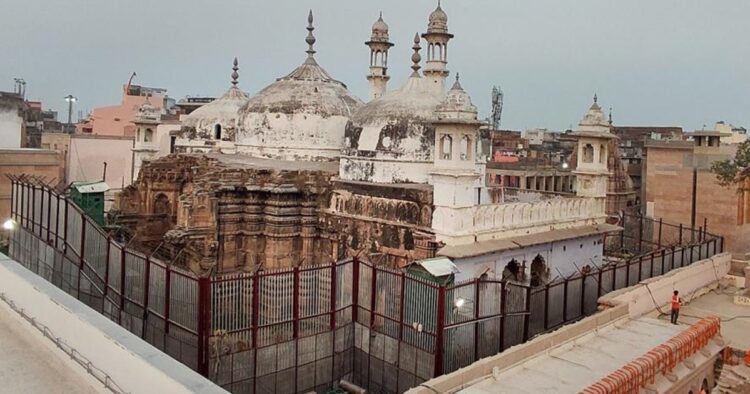In a recent development, the Allahabad High Court made a crucial decision regarding the ownership dispute between the Gyanvapi Mosque and the Kashi Vishwanath Temple in Varanasi.
The Sunni Central Waqf Board and Anjuman Intezamia Masjid Committee had filed petitions challenging the ownership status of the Gyanvapi Mosque. The High Court, however, rejected these pleas along with five other petitions questioning the legitimacy of a civil suit pending in a Varanasi court. This suit aims to restore a temple at the location currently occupied by the Gyanvapi Mosque.
The petitions were submitted by the Anjuman Intezamia Masajid Committee (AIMC) and the Uttar Pradesh Sunni Central Waqf Board. They also contested a Varanasi court order from April 8, 2021, which called for a comprehensive survey of the Gyanvapi Mosque. The court, after hearing arguments from both sides, reserved judgment on December 8, 2023.
The AIMC, responsible for managing the Gyanvapi Mosque situated next to the Kashi Vishwanath Temple, challenged the legitimacy of the suit filed in Varanasi. In this suit, Hindu petitioners seek the restoration of a temple at the site where the Gyanvapi Mosque currently stands.
According to the Hindu side, the Gyanvapi Mosque is considered a part of the temple. However, the key argument presented by the Anjuman Intezamia Masajid Committee and the UP Sunni Central Waqf Board is based on the Places of Worship Act (Special Provisions) Act of 1991.
The primary contention revolves around the Places of Worship Act, which prohibits the alteration of the character of religious places as they existed on August 15, 1947. This Act serves as a legal framework to safeguard the historical and cultural integrity of religious sites. In the context of the Gyanvapi Mosque and Kashi Vishwanath Temple dispute, the Act plays a pivotal role in determining the validity and maintainability of the civil suit seeking the restoration of the temple.
The ownership dispute is rooted in conflicting beliefs regarding the historical connection between the Gyanvapi Mosque and the Kashi Vishwanath Temple. While the Hindu side asserts that the Gyanvapi Mosque is an integral part of the temple, the AIMC and the Sunni Central Waqf Board challenge the legal grounds of the suit and emphasize the protection afforded by the Places of Worship Act.
The Allahabad High Court’s rejection of the petitions adds a new chapter to this longstanding legal battle, leaving the resolution of the dispute in anticipation.

















Comments